News from Maison de la Gare
A Volunteer's Cultural Awakening
Tweeter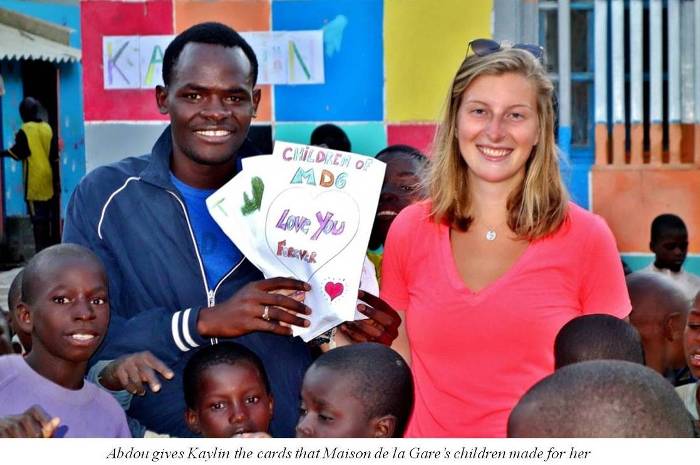
Kaylin Zimmer, American volunteer with Maison de la Gare
Kaylin studies economics at
Seattle University, specializing in International Economic Development. Coming
from Anchorage, Alaska, she has always loved to travel and fell in love with
Africa after her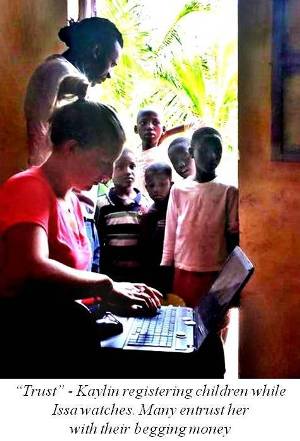 first trip in Malawi in 2013. Ever since, she has been
looking for a way to return while doing something meaningful. The opportunity
to intern with Maison de la Gare was a no-brainer, a chance to practice French,
return to a continent she loves and gain meaningful experience while making a
difference.
first trip in Malawi in 2013. Ever since, she has been
looking for a way to return while doing something meaningful. The opportunity
to intern with Maison de la Gare was a no-brainer, a chance to practice French,
return to a continent she loves and gain meaningful experience while making a
difference.
Kaylin’s work in Saint Louis includes helping to develop the system for
monitoring and tracking the boys who come to Maison de la Gare’s centre, in
addition to teaching English classes to older talibé children, helping in the
infirmary and much more.
In this report, Kaylin reflects on what she has learned working with Maison
de la Gare and the talibé children.
“As my time here draws near to a close, I’ve begun to realize (and to
try to come to terms with) that, when working as an outsider in a foreign
country, 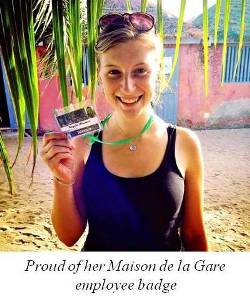 there are some things that simply cannot be done.
there are some things that simply cannot be done.
Perhaps most glaring has been the simple fact that one cannot expect work
to be carried out in the same way as it is at home. One of the differences
I’ve noticed working here is that people put life before their work. If
there’s a baptism, a funeral, they’re too tired, their child got momentarily
lost (all things that I’ve heard from various people), these are the things
that come first. Baptisms and funerals are attended, they rest, and they
find their child and spend time with them. As a result, the efficiency and
diligence I am used to tend to go out the window. This relationship between
life and work is one I think many people and nations struggle with. I think
many Senegalese are still working out how to work in a country on the verge
of development, 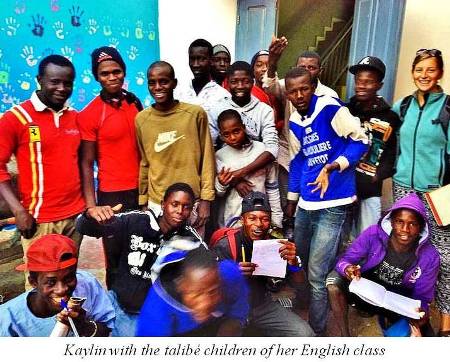 yet with a subsistence lifestyle not so far behind them.
I’ve learned valuable lessons in patience and persistence, as both are
necessary to yield long-term results.
yet with a subsistence lifestyle not so far behind them.
I’ve learned valuable lessons in patience and persistence, as both are
necessary to yield long-term results.
Also interesting and challenging has been my experience as a white, agnostic
young woman coming from a country where none of this is out of the ordinary
and women’s rights are (relatively) progressive. Working for an organization
like Maison de la Gare, that deals so intimately with some of the deeply
religious Muslims in Senegal, it’s impossible for me to understand the
nuances and complexities of the Islamic faith, which in turn limits how
helpful I truly can be in tasks such as implementing our census of the
begging talibé children of Saint-Louis. While to me it may seem relatively
simple, 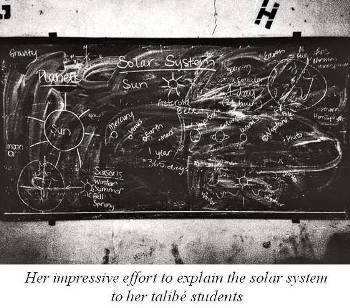 dealing with the marabouts here is sensitive both due to the fact
that they want some benefit for them if we expect them to give us verifiable
information, and that they may understand that some of what we do at Maison
de la Gare may undermine their power as many of them are exploiting the boys
we are trying to save from exploitation.
dealing with the marabouts here is sensitive both due to the fact
that they want some benefit for them if we expect them to give us verifiable
information, and that they may understand that some of what we do at Maison
de la Gare may undermine their power as many of them are exploiting the boys
we are trying to save from exploitation.
In a country where religion is paramount and some religious leaders benefit
from the mistreatment of children, and where women are seen less as agents
of change and more as objects to be admired, adored and responsible for a
household, it’s been challenging to find where I can truly have an impact
beyond the doors of the center. Part of what I’ve realized is that, even
if the best I do is get to know the boys, teach an English class that many
talibés desperately want to attend and help where the organization needs
help, that is enough. Though I have been helping with the register and the
census, the 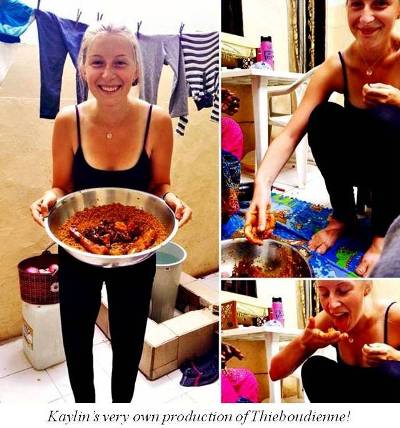 times where I feel most valuable are in my interactions with
the friends I have made here, both young and old.
times where I feel most valuable are in my interactions with
the friends I have made here, both young and old.
And, of course, what affects everything I’ve mentioned and more is the
challenge of working in a country that speaks my second language, with an
unfamiliar accent, and more commonly speaks a language I speak none of at
all. Although this is certainly something for which I take responsibility,
as I knew where I was going, and although I expected French to be more
commonly spoken, I was aware that Wolof was the unofficial language. It
does pose a challenge when it comes to understanding all of what’s
happening around me. I miss out on conversations and, even during meetings
where I am present, they often begin in French and then digress into a
French-Wolof hybrid. 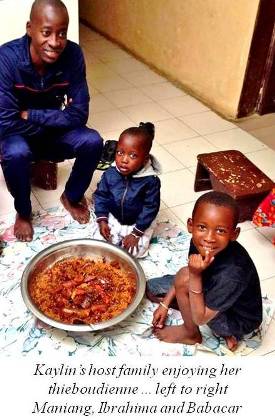 Although between my limited Wolof, my French and my
questions I always understand the key takeaways of the meetings, I still
miss the nuances of why one idea may not work, or why something else is
better. When these involve the marabouts and the obstacles involving them
and their faith, it often becomes even more confusing as I struggle to
grasp the weight that religion has for many people.
Although between my limited Wolof, my French and my
questions I always understand the key takeaways of the meetings, I still
miss the nuances of why one idea may not work, or why something else is
better. When these involve the marabouts and the obstacles involving them
and their faith, it often becomes even more confusing as I struggle to
grasp the weight that religion has for many people.
My time here has been a cultural awakening, truly. Before leaving home,
my fellow interns and I were told repetitively to acknowledge that we were
going somewhere we were unfamiliar with, into an organization that has been
doing their jobs for long enough to likely know better than us, and that we
should be open to understanding their perspectives. While all of this has
been true and I have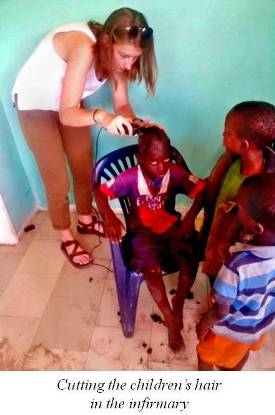 learned a lot, I feel that most of what I have learned
has been incredibly humbling, not because it turns out I know very little
academically or work-specific but because I know so little about the
culture and the importance of religion here. Not understanding the
strongest values of the people limits my ways of understanding how to best
work with or around them.
learned a lot, I feel that most of what I have learned
has been incredibly humbling, not because it turns out I know very little
academically or work-specific but because I know so little about the
culture and the importance of religion here. Not understanding the
strongest values of the people limits my ways of understanding how to best
work with or around them.
My stay in Senegal has been my own sensitivity training, becoming sensitized
to how the beliefs of the people we are with affect how we can and cannot
make progress. I think this is a lesson that I need to continue to learn,
as there are still many times when I get frustrated with the rate at which
projects are accomplished. However, I am also learning how to know when my
way may be better, and how to demonstrate to others why I do things the way
I do them and why they may benefit from this as well.”



















